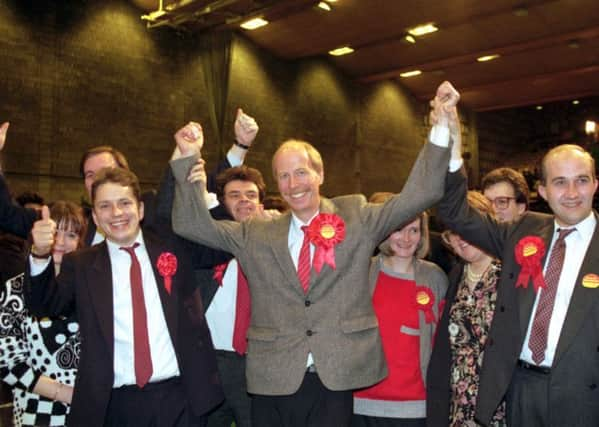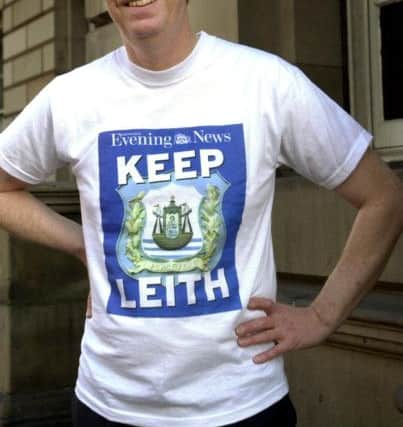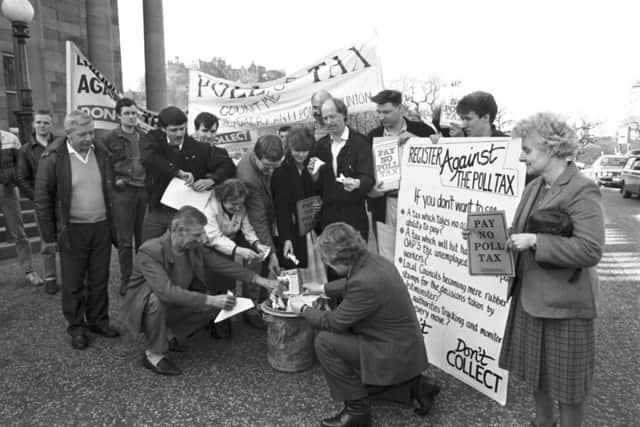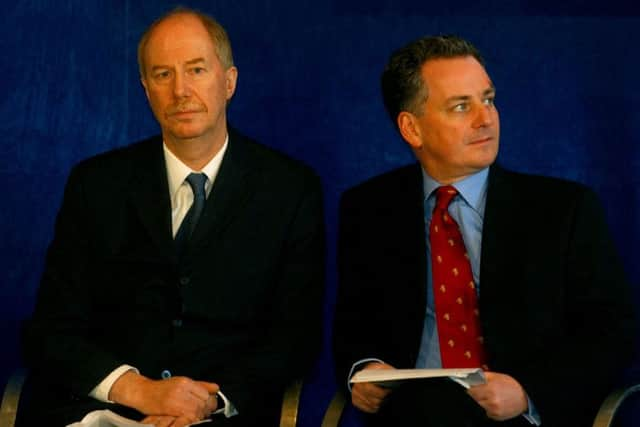Malcolm Chisholm stands down after 25 years in politics


Now Malcolm Chisholm has stood down after nearly a quarter of a century as an elected representative.
And his Facebook page has been swamped with tributes from people hailing him as “a man of integrity”, “a true gent” and “one of the people who made Holyrood work”, as well as those thanking him for his “wonderful work for our community”.
Advertisement
Hide AdAdvertisement
Hide AdThe former teacher was first elected Labour MP for Leith at the 1992 general election after his maverick predecessor, Ron Brown, was deselected by the local party.


The Tories were in power and the Scottish Parliament was still seven years away, but Mr Chisholm remembers a growing pressure for devolution.
“There was a lot of momentum for a Scottish parliament,” he says. “One of the first things I was involved in was a group called Scotland United, away back in 1992, so I was working with people in the SNP campaigning for a devolved parliament.
“I think people knew as soon as we got a Labour government we would get a Scottish parliament, but clearly that was a long way off and it wasn’t until the end of the decade that that happened.”
Advertisement
Hide AdAdvertisement
Hide AdAfter Labour’s 1997 landslide, Mr Chisholm was appointed as a minister in the Scottish Office. “I enjoyed that – but there’s a big contrast between the old days and now. You had a massive portfolio – I was doing housing, transport and local government.


“There were only six ministers and one was in the House of Lords – that was one of the scariest things, I had to answer Lord Sewell’s questions on agriculture and fisheries in the House of Commons, even though that was probably the one subject I had not taken an interest in.”
But after just seven months in office, he resigned in protest at benefit changes, which cut up to £11 a week from payments to lone parents.
Looking back, he says he has no regrets over the decision. “I think I was influenced by people in the constituency – I knew that a lot of people I respected were very concerned about that policy and I felt, ‘I can’t really do this and look these people in the eye if I’m going along with this policy’.
Advertisement
Hide AdAdvertisement
Hide AdThere was speculation his rebellion might frustrate his hopes of getting to the Scottish Parliament. But while some other left-wingers fell foul of Labour’s vetting procedure, Mr Chisholm made it on to the approved list and was selected as candidate in Edinburgh North and Leith, which he duly won.


From the start, his chief interest was in health. He became deputy convener of the parliament’s health committee, was later deputy health minister and then made health minister by Jack McConnell in 2001.
He had briefly made a bid for the leadership to avoid Mr McConnell being elected unopposed, but could not assemble enough support and pulled out.
Now he says: “That was just a moment of madness. I never really had any ambitions for that. I thought there should be a contest. But it was never really going to happen.”
Advertisement
Hide AdAdvertisement
Hide AdHe served three years as health minister and two as minister for communities before returning to the backbenches.


“We achieved significant things in health in terms of reorganisation of the health service; free personal care – I did the legislation for that – the mental health legislation.
“I would have wished waiting times to have fallen more quickly, although by the end of the Labour government they were a pretty good state and much better than in 1999.”
Communities involved a variety of remits and landmark legislation on planning. “I never really took to planning,” he confesses. “But I was doing a lot on equality, and violence against women, and housing.
Advertisement
Hide AdAdvertisement
Hide Ad“Johann Lamont was my deputy and she was very keen on planning, so that was a happy combination.”
He was forced to quit the post, however, after voting against the renewal of Trident while most Labour MSPs took the opposite stance. He took the view that, since defence was a Westminster responsibility, there was no obligation to follow a party line at Holyrood. But others thought differently.
“That was a matter of deep unhappiness for me,” he says. “I was extremely unhappy when I stopped being a minister at that time; I didn’t think it should have happened.


“I’ve never regarded it as a resignation, although formally it was and that was the way the administration presented it.
Advertisement
Hide AdAdvertisement
Hide Ad“But it wasn’t really a resignation at all, it was a sacking.”
Mr Chisholm was never a “serial rebel”. “It’s only occasionally I have disagreed with the party position,” he says.
But he did not hesitate to speak his mind, even if it meant praising the other side. And over time, he seemed to become the SNP’s favourite opposition MSP.
“If we agree, we should say so,” he argues. “I don’t believe in difference for its own sake.
Advertisement
Hide AdAdvertisement
Hide Ad“It’s important not to demonise your political opponents, you need to see them as they are. If you disagree, say so, but don’t misrepresent what they’re doing and saying.”
Mr Chisholm earned a reputation as an assiduous and hard-working constituency MSP. He held two or three surgeries every Saturday morning for the past 24 years.
And although he is no longer an MSP, he plans to remain active in the area and on local issues.
He says: “I’m already on the board of North Edinburgh Childcare and I’m going to be on the board of three other local projects.”
There will also be more time for his four grandchildren.
Advertisement
Hide AdAdvertisement
Hide AdIn the immediate future, he will be campaigning for Labour colleagues in the Holyrood election and is not downcast about the party’s prospects, even after the near wipe-out at Westminster.
“Last year people were voting very much in terms of their referendum preferences,” he says. “I think this election is different – the polls tell us it’s not, but my own feeling is strongly that Labour is going to do better than people expect.
“I think Labour has a strong combination of policies now and has differentiated itself clearly from the SNP. All credit to Kezia Dugdale that she’s been prepared to be bold.
“The SNP strategy is very much big tent politics, sit in the centre ground and hope to scoop up as much of the Scottish electorate as possible. But I think Labour will come back more than people think in this election and build on that.”